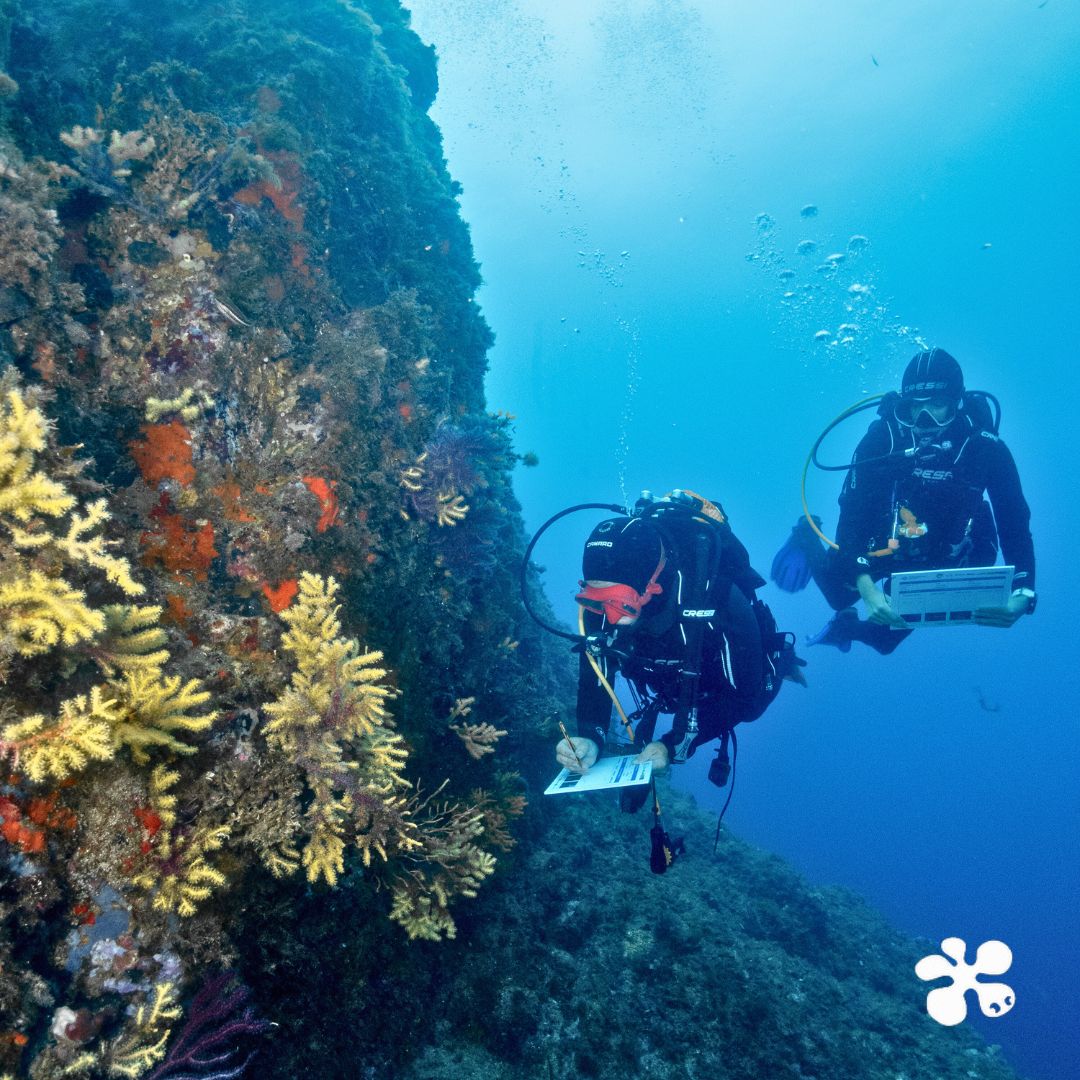Preserving Marine Life: marine conservation projects to tackle climate change
The research and conservation of marine ecosystems, especially in a context of climate change, is essential to maintain the health of the oceans and life on Earth. These ecosystems provide much of the oxygen we breathe, regulate the global climate, provide food and essential resources for millions of people, and are home to diverse species of flora and fauna, many of which are still unknown to science. The MEDRECOVER research group of the Biodiversity Research Institute of the University of Barcelona leads several projects focused on marine protected areas and marine restoration, with the aim of understanding and mitigating the impacts of environmental changes in these environments.
The research of Dra. Cristina Linares, principal researcher of the MEDRECOVER group, focuses on evaluating the responses of marine ecosystems to climate change, fishing and other local disturbances, with the aim of predicting their future evolution and proposing conservation tools. His research has revealed the importance of marine protected areas as conservation tools, coordinating the program for monitoring the marine biodiversity of protected areas in Catalonia.
Long-term follow-up and increasing scale
For two or three decades, the MEDRECOVER group has been monitoring marine biodiversity, maintaining a philosophy of long series in its research, which allows it to follow the evolution of marine ecosystems in the long term. Likewise, the group coordinates the monitoring of marine biodiversity in protected areas of Catalonia, commissioned by the Generalitat, for various species, such as gorgonians, corals, algae and bryozoans.
These investigations have provided a crucial basis for their participation in large-scale projects such as the CORFUN citizen science project. "We have recently participated in the citizen science project CORFUN, organizing days called Coralligenous weekends on the Costa Brava where volunteers assessed the impact of climate change on gorgonians and corals. Although the results on mortality have been disappointing due to the severe impact on the corals, we have seen that the collaboration with the public allows us to cover a wide range of places, where we normally cannot reach" explains Dra. Linares This citizen science project helps the MEDRECOVER group to better understand the impact of heat waves on marine biodiversity.
Innovative approaches and methodologies
The group's innovative and diverse research focuses on keystone species, particularly corals, gorgonians and other organisms such as sea urchins, algae and fish, to understand their role as habitat builders and indicators of marine ecosystem health.
Research methodologies range from in-situ monitoring with immersion, to the use of underwater robots and techniques such as radiotracking and remote sensing to understand connectivity and contribute to the conservation of Mediterranean marine ecosystems, the data extracted from them allow make demographic modeling to predict the evolution of marine ecosystems.
At an experimental level, the group has carried out experiments in aquariums to evaluate how different marine species respond to temperature and acidification conditions, thus complementing the in situ monitoring. These approaches allow researchers to better understand ecosystem dynamics and predict how these responses might evolve in the future.
Vulnerability and resilience
The studies carried out so far have made it possible to assess the status of some key species. The CORFUN project “Coralligenous weekends” has observed a decrease in the abundance and size of gorgonians and corals. This has implications for the complexity of the ecosystem and the possibility of species invasions: "It is true that, with a long time series, significant changes are observed, not only in the disappearance of species, but in the changes of abundance that favor species with simpler ecological functions, reducing the complexity of communities.” Cristina tells us. In damaged ecosystems it has been seen how some invasive algae thrive: this is because these invasive species find spaces where they can proliferate, on the other hand a healthy and well-developed marine ecosystem acts as a barrier that prevents the entry of invasive species. This fact highlights the importance of maintaining the state of conservation to prevent these problems and better resist climate change.
Towards effective conservation plans
The studies carried out by the group seek to influence political decision-making related to the conservation of marine ecosystems. With a prominent presence in public administration commissions, protected areas commissions and other instances, to contribute significantly to marine conservation policies. Some of its scientific reports have supported initiatives such as the ten-year ban on red coral fishing, demonstrating the unsustainability of this practice from a biological point of view.
Leadership in marine conservation
The leadership of Dr. Cristina Linares in marine conservation projects, together with the efforts of the MEDRECOVER group, highlight the importance of understanding and mitigating the impacts of climate change on marine ecosystems. Through long-term monitoring, the use of innovative approaches and the influence of conservation policies, the group seeks to preserve the resilience of Mediterranean marine ecosystems in the face of increasing environmental challenges.
